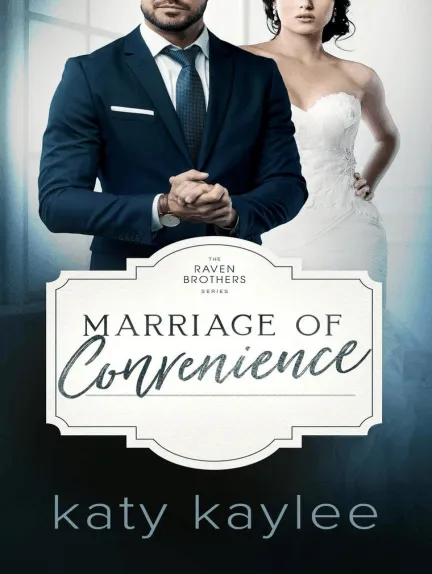Dougless had to get up very early to catch the train to London; then she took a long, expensive taxi ride to the airport. The sense of accomplishment that had sustained her since she’d left the sixteenth century was leaving her. All she felt now was very tired and very alone. She’d fallen in love with Nicholas twice. Every passing second seemed to bring memories back to her. She remembered when he’d been in the twentieth century and the wonder on his face as he’d touched a book of color photographs. She remembered the way he’d been fascinated with watching the taxi driver shift gears. And the Playboy magazine in the drawer at Arabella’s!
When she went to the sixteenth century and he hadn’t remembered her and he’d even seemed to hate her, she’d thought he’d changed. But he hadn’t. He was still the man who put his family before himself, and when he began to include Dougless in his family, he had loved her as completely as he did them.
When the boarding of the plane was called, Dougless waited until the last minute to get on. Maybe she shouldn’t leave England. If she remained in England, she would be closer to Nicholas. Maybe she should buy a house in Ashburton and visit his tomb every day. Maybe if she prayed enough, she would be returned to him, or him to her.
She tried to control herself, but the tears started anyway. Nicholas was truly and completely gone from her. Never again would she see him, hear him, or touch him.
Tears were blinding her so much that as she boarded, she walked into the man in front of her and her tote bag slid off her shoulder onto the lap of a first-class passenger.
“I’m so sorry,” she said; then she looked into the blue eyes of a very handsome man. For a moment her heart pounded, but she made herself turn away. He wasn’t Nicholas; his eyes weren’t Nicholas’s eyes.
She took her tote bag from the man while he stared up at her with interest. But Dougless wasn’t interested. The only man who interested her was sealed inside a marble tomb.
She made her way back to her seat, shoved her tote bag under the seat in front of her, then looked out the window. As the plane began to taxi down the runway and she realized that she was leaving England, she began to cry in earnest. The man in the aisle seat beside her, an Englishman, buried his face deeper into his newspaper.
Dougless tried to make her tears stop. She gave herself little pep talks about how much she’d been able to accomplish, and reminded herself that losing Nicholas was a small price to pay for all the good she’d done. But each thought made her cry harder.
By the time the plane was aloft and the FASTEN SEAT BELT sign was off, she was crying so hard that she didn’t see what happened next to her. The man from first class, a champagne bottle and two glasses in his hand, asked the man next to Dougless to exchange seats.
“Here,” he said.
She could see through her tears a tall glass of champagne being held out to her.
“Go on, take it. It’ll do you good.”
“You’re an A-American,” she said through tears.
“Yes. I’m from Colorado. And you?”
“M-Maine.” She took the champagne, drank too fast, and choked. “I-I have cousins in Colorado.”
“Oh? Where?”
“Chandler.” Her tears weren’t flowing as fast.
“Not the Taggerts?”
She looked up at him. Black hair and blue eyes. Just like Nicholas. The tears sped up again. She nodded.
“I used to go to Chandler with my father sometimes, and I met some of the Taggerts. I’m Reed Stanford, by the way.” He held out his hand to shake hers, but when she didn’t move, he picked up her hand off her lap and clasped it in his. “Nice to meet you.” He didn’t release her hand, but looked at it, saying nothing, until Dougless snatched her hand away.
“Sorry,” he said.
“Mr. . . . ?”
“Stanford.”
“Mr. Stanford,” she said, sniffing, “I don’t know what I did to give you the impression that I’m an easy pickup, but I can assure you that I’m not. I think you’d better take your champagne and return to your own seat.” She was trying to be regal, but her effort lost something, since her nose was red, her eyes swollen, and tears were running down her cheeks.
He didn’t take the glass and he didn’t leave.
He was beginning to make Dougless angry. Was he some pervert who liked crying females? What in the world had happened in his childhood to cause him to be turned on by tears? “If you don’t leave, I’ll have to call the attendant.”
He turned to look at her. “Please don’t,” he said, and there was something in his eyes that made Dougless halt as she reached for the call button. “You must believe me; I’ve never done anything like this in my life. I mean, I’ve never accosted a woman on a plane before. Or even in a bar, for that matter. It’s just that you remind me of someone.”
Dougless wasn’t crying any longer because there was something eerily familiar in the way he moved his head. “Who?” she asked.
He gave a little grin, and Dougless’s heart skipped a beat. Nicholas sometimes grinned like that. “You wouldn’t believe me if I told you. It’s too far-fetched.”
“Try me. I have a lot of imagination.”
“All right,” he said. “You remind me of a lady in a portrait.”
Dougless was listening now.
“When I was a boy, about eleven, I think, my parents, my older brother, and I came to England for a year to live. My father had a job here. My mother used to drag my brother and me to antiques stores, and I’m afraid that I wasn’t very gracious about going. That is, until one Saturday afternoon when I saw the portrait.”
Pausing, he refilled Dougless’s empty glass. “The portrait was a miniature oil, done sometime in the sixteenth century, and it was a picture of a lady.” He looked at her, and in spite of her swollen face, his eyes were almost caressing.
“I wanted that portrait. I can’t explain it. It wasn’t that I just wanted it; I had to have it.” He smiled. “I’m afraid I wasn’t exactly sweet-tempered about voicing my wants. The portrait was quite expensive and my mother refused to listen to my demands, but I’ve never taken no for an answer. The next Saturday I took the tube, went back to the antique shop, and offered everything I had as a down payment on the portrait. I think it was about five pounds.”
He smiled in memory. “Looking back on it, I think the old man who owned the shop thought I wanted to be a collector. But I didn’t want to collect; I just wanted that portrait.”
“Did you get it?” Dougless whispered.
“Oh, yes. My parents thought I was crazy and said an Elizabethan miniature was no possession for a child, but when they saw me, week after week, giving all my allowance toward the purchase of that miniature, they began to help me. Then, just before we left England, when I’d begun to feel that I was never going to get enough money together to buy it, my father drove me to the antique shop and presented the portrait to me.”
The man sat back in his seat, as though that were the end of the story.
“Do you have the portrait?” Dougless whispered.
“Always. I’m never without it. Would you like to see it?”
Dougless could only nod.
From his inside coat pocket, he withdrew a little leather case and handed it to her. Slowly, Dougless opened the box. There, on black velvet, was the portrait Nicholas had had painted of her. It was encased in silver and around the edges were seed pearls.
Without asking permission, Dougless lifted the miniature from the case, turned it over, then held it up to the light.
“My soul will find yours,” Reed said. “That’s what it says on the back, and it’s signed with a C. I’ve always wondered what the words meant and what the C stood for.”
“Colin,” Dougless said before she thought.
“How did you know?”
“Know what?”
“Colin is my middle name. Reed Colin Stanford.”
She looked at him then, really looked at him. He glanced down at the portrait, then up at her, and when he did so, he looked at her through his lashes, just as Nicholas used to do. “What do you do for a living?” she whispered.
“I’m an architect.”
She drew in her breath. “Have you ever been married?”
“You do get to the point, don’t you? No, I’ve never been married, but I’ll tell you the truth: I once left a woman practically at the altar. It was the worst thing I’ve ever done in my life.”
“What was her name?” Dougless’s voice was lower than a whisper.
“Leticia.”
It was at that point that the stewardess stopped by their seats. “We have roast beef or chicken Kiev for dinner tonight. Which would you like?”
Reed turned to Dougless. “Will you have dinner with me?”
My soul will find yours, Nicholas had written. Souls, not bodies, but souls. “Yes, I’ll have dinner with you.”
He smiled at her and it was Nicholas’s smile.
Thank You, God, she thought. Thank You.



















